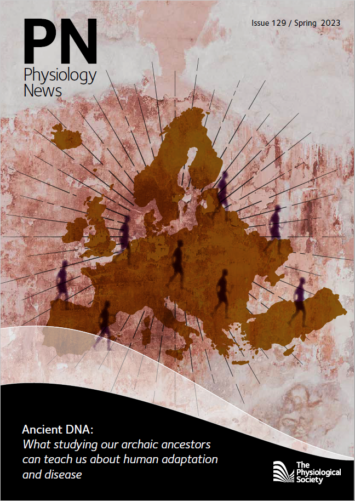
Physiology News Magazine
It is nice to be important – but it is important to be nice!1
Editor-in-Chief, The Journal of Physiology
News and Views
It is nice to be important – but it is important to be nice!1
Editor-in-Chief, The Journal of Physiology
News and Views

Dr Peter Kohl
Editor-in-Chief, The Journal of Physiology
Last spring, a colleague of mine started a prestigious appointment in physiology at a leading academic institution in the UK. She was delighted, of course, and impressed with the level of support in scholarly and operational matters that was promised. Then, the leadership at the institution changed, and so did the previously promised support: the budget allocated dropped by a third, citing the (genuinely difficult) financial situation of that institution.
Now – what would be your advice to my colleague?
Accept (mustn’t grumble!) and get on with the job, even if this now was going to be much more difficult? Protest (grumble…), even if that is rarely productive and generally frowned upon? Leave, even if the academic fit remained near-perfect?
I don’t know.
In my view, mutual respect and accountability in the way we conduct professional interactions form an essential basis for academic self-governance. ‘Pulling rank’ has no place in academia. When we debate science concepts and activities, it doesn’t matter whose title indicates higher accolades, or who has been around for longer. This, I think, is one of the key aspects that makes our profession attractive, and we should keep it that way.
Mutual support is at the heart of peer review as well.
As authors, we should actively seek to exploit the productive impetus of criticism, even if it may be hard at times to separate this from emotions that arise from disagreement. As reviewers, we should refrain from judging authors and focus on the science at hand – ideally, with the clear aim of helping to improve both the research and its presentation.
Peer review involves a significant amount of work. Assuming that a manuscript goes through two rounds of revisions, involving two external referee reports each, we should act as a reviewer four times for each article we publish. And that is a rather conservative estimate, at least based on my experience of the journey towards an accepted paper. Food for thought.
As editors, we try to balance the arguments made and, hopefully, select the best papers for publication. This process is bound to involve mistakes. But I am unaware of a single research paper that hasn’t been improved through thorough peer review. So, sidestepping it in favour of publishing more or faster doesn’t seem prudent to me. One would simply delegate the task of reviewing a manuscript from a small number of expert colleagues to ‘all readers’, without the benefit of engaging authors in a dialogue that leads to an improved output for the benefit of all.
No doubt, it helps to get insight into all three aspects of the peer-review system: writing, reviewing, editing. With this in mind, The Journal of Physiology’s Editorial Board Fellowship offers up to 10 early career scientists per year an opportunity to experience the editorial process first hand. We warmly welcome our class of 2023, who will start their two-year term this July.2 I should like to finish by thanking all of you for engaging in academic self-governance though the various aspects of conducting and publishing science.
Even if you can’t always get what you want.3
Footnotes
- A saying variably attributed to Walter Winchell, Tony Curtis, John Templeton, Sidney Blackmer, Dwayne Johnson, Roger Federer, and others.
- https://physoc.onlinelibrary.wiley.com/hub/journal/14697793/winners_editorial_board_fellowship
- Jagger M & Richards K, The Rolling Stones: Let It Bleed,1969.
